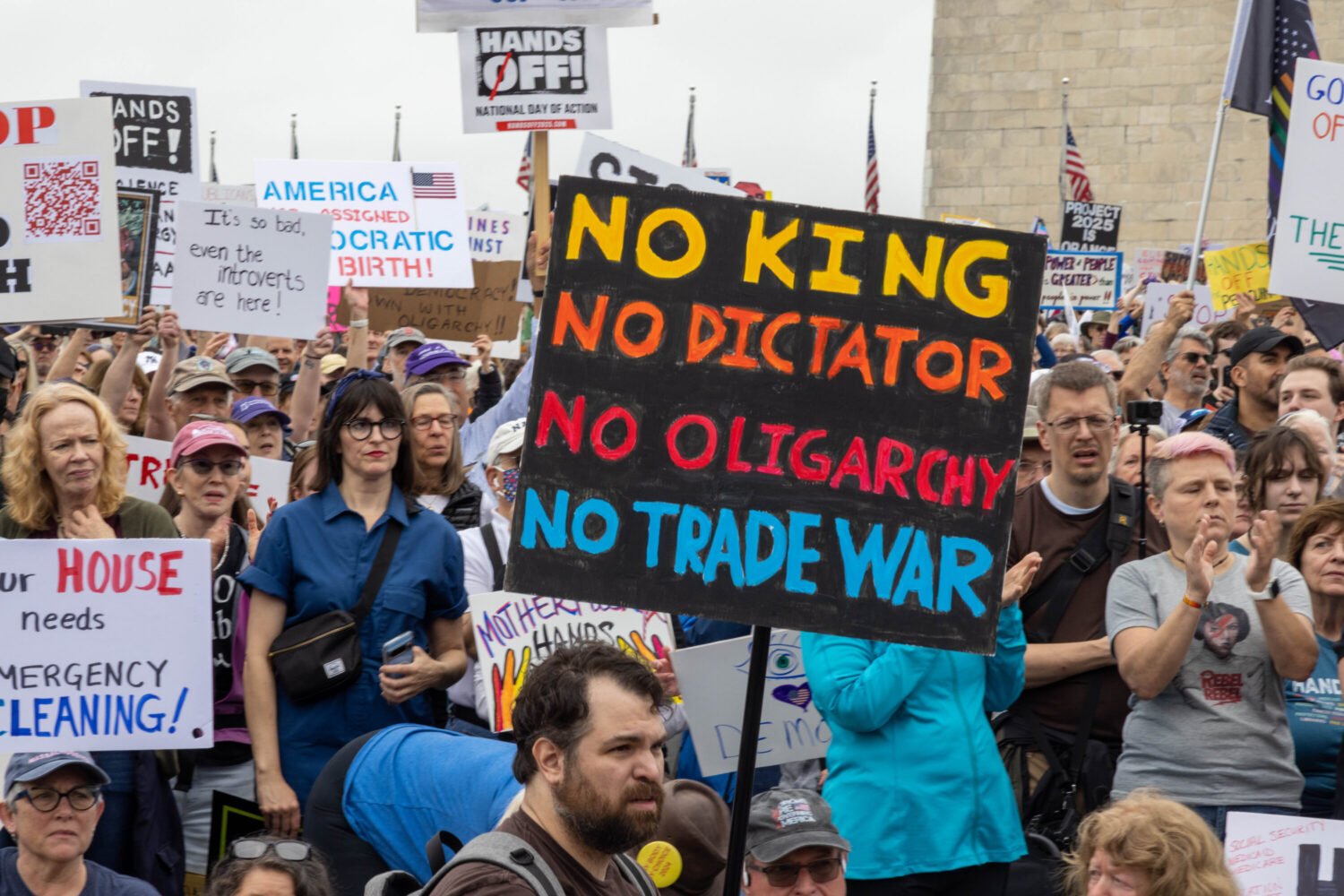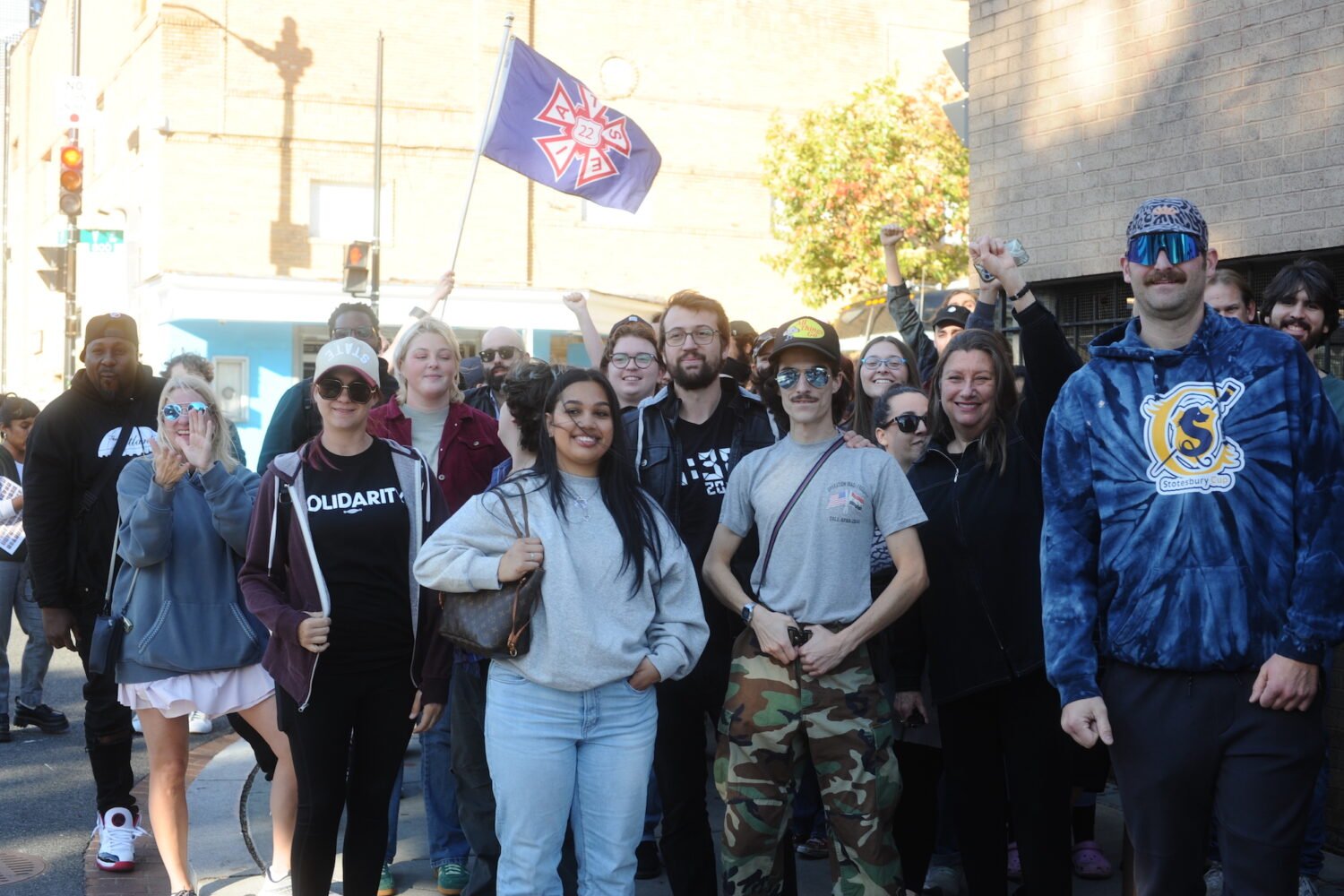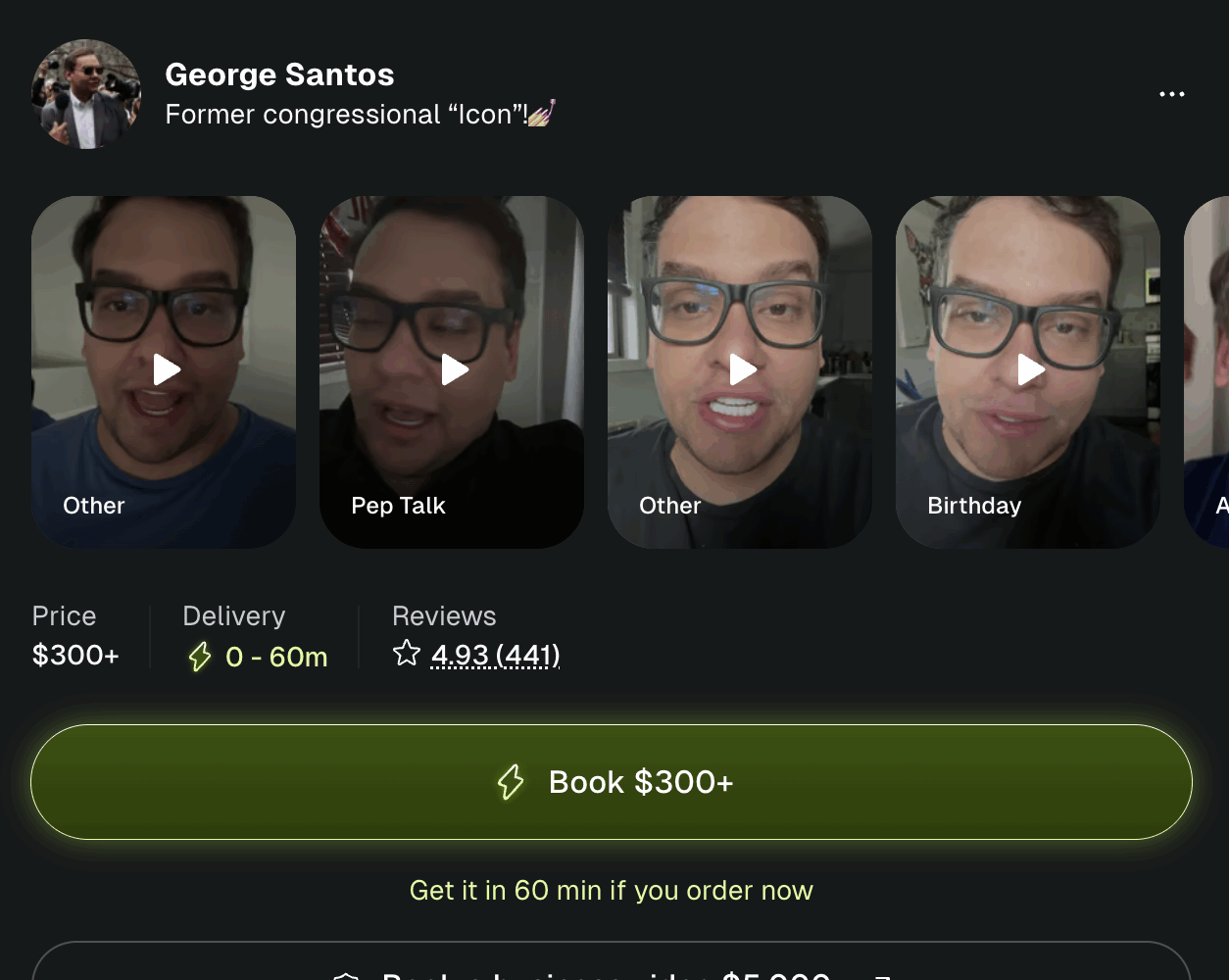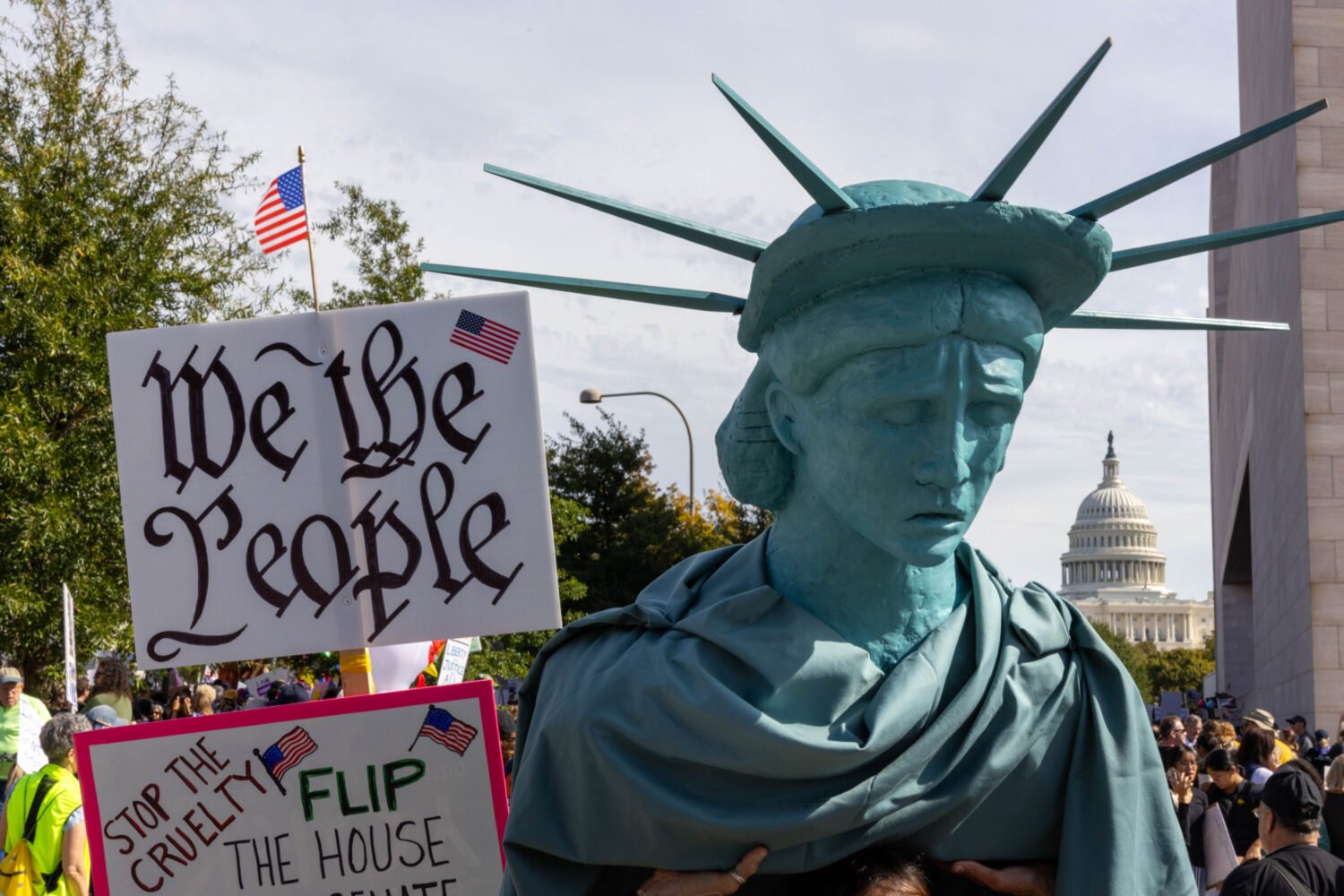How have the wild initial months of Donald Trump’s return to the White House landed on Washington? We asked the people who live and work here to tell us—in their own words.
Today, we hear from a worker at the National Institutes of Health, who asked to remain anonymous. (Editor’s note: the following interview has been lightly edited for space and clarity).
What has been your predominant mood during Trump’s first 100 days?
Just absolute despair. The assault and attacks on the courts, the attacks on our institutions, the attacks on anything related to diversity—racial diversity, ethnic diversity, religious diversity, this is something we should be celebrating and not attacking. We’re now seeing the country falling off a cliff. I see threats to democracy where he is trying to restrict people’s right to vote, an all-out assault on institutions that are supposed to be places where you have free speech and are exposed to new ideas. I can remember my very first year of college, the first day of school, there’s a protest against Apartheid. There’s discourse that takes place and people learn, and people study and they expand their view. So you want to restrict that? You want to start telling institutions what they need to be teaching when you don’t even understand those disciplines yourself?
We’re just going down a pathway to destruction. These assaults on biomedical research and science are going to knock us off the platform of being at the top. We are the number one country for biomedical research in the world, and we are not going to hold that supremacy with these folks.
Do you have any specific knowledge of universities particularly impacted and research that has been hard hit?
Anything that would fall in the category of diversity, equity and inclusion could be pulled. Grants have been pulled even if your research mentions the word “diversity.” That’s insane because anybody that studies different organisms, different strains–if you remember from the pandemic, researchers talked about the different Covid variants, and often referred to this as diversity, the diversity of organisms— if that word, “diversity,” is in their proposal, the grant is flagged and they yank the money. [Or the word] “inclusion”—anyone who’s doing clinical trials, we have what we refer to as inclusion and exclusion criteria for participating in a trial.
A lot of studies target specific populations. If I do a study on Sickle Cell Anemia, I’m going to do the study on African Americans, because they are the ones at highest risk. You’re going to call that study DEI because it’s targeting African-Americans? Are you going to label a study focused on HIV prevention “DEI” because it targets the LGBTQ community, when we know based on extensive epidemiological research that they are at high risk of infection?
We are trying to push back, trying to stand up for our researchers. We recognize that if we go too far, we could easily get flagged and lose our jobs. You can push back some, but we don’t want to lose our jobs.
Nobody does.
We like what we do! And maybe, to these idiots in the Administration, that’s a foreign concept, but some people are actually passionate about their work. People have spent their entire lives trying to get to an NIH or the Centers for Disease Control or the Food and Drug Administration. This is their dream, and then suddenly, some idiot just determines that their work isn’t valuable and they’re dismissed.
New NIH director Jay Bhattacharya was outspoken and critical about the country’s handling of Covid. Does this concern you?
Science is data-driven. And people can have diverse opinions, or diverse views–you know, you look at certain types of disease, and there may be multiple hypotheses as to what causes this disease, you got this hypothesis, you got that hypothesis. You may look at epidemiologic studies that say, for example, red wine is a health benefit. And another study says well, red wine doesn’t do much. Ok, so what do we do? We look at the data, we determine the quality of the research that’s done, we post other types of studies and we try to collect [more information]. We do the research to answer the questions.
So having a different view, or a different perspective, isn’t problematic in and of itself—but when we have methods and tools and approaches that lead to positive outcomes, then this should be the preferred method for screening for disease or treating a disease, monitoring for a disease. The science tells us what works. So when someone comes and says an approach or a strategy that we know is effective isn’t effective, and doesn’t present any data to show that, then that is dangerous. Because it puts people’s lives at risk.
Describe the mood inside NIH in one word.
Ooof! Depressed. And I can elaborate on that. We are depressed because we don’t know what our future is; we’re depressed because our colleagues who are out in the field or at the institutions or having their research interrupted are having to maybe let go of people working in their laboratories, or people working in their clinical trials units, they may not order the equipment or supplies or reagents they need to do their research. They may be training graduate students and not able to support them.
It’s not just that we’re concerned that “I may not have a job”—which is a big deal!—but it’s also seeing our colleagues hurting, seeing people doing important work, and then having their grant pulled because they’re studying health disparities which we know are real in this country, very real, and it’s important research to understand how to improve access to care and outcomes when these disparities exist.
Does anyone at NIH have faith in new Secretary of Health and Human Services RFK Jr?
Nobody that I know (laughs). It’s a slap in the face. We can do better than that. We look at what he’s doing with the measles outbreaks. We look at what’s happening with the bird flu/avian influenza, and God only knows what other pathogens are likely to show up. This person offers us nothing in terms of coping with life or death challenges. There’s no guidance or anything we can get from an RFK Jr.
What are you expecting around the corner? More job cuts? More grant cuts?
Both.
Why do you think the administration is making all these cuts?
I think they are basically trying to eviscerate the government and show that, ‘oh, we’ve reduced the national debt, we’ve cut the government, we’ve cut X trillion dollars’ or whatever the amount is—and now you can turn around and give a nice big fat tax break to the billionaires.
What would most surprise the public to know about what’s going on at NIH?
I think what would surprise them the most is seeing that these researchers and these projects that we are funding—these are the types of approaches that lead to cures for new diseases. I saw a poll that said the average person feels that this science is wasteful. OK, but what do they even know about the science? Not much. And I think if they understood the pathway from basic science to translational science to animal studies to clinical trials to new drugs [for a disease] they or their relatives might be suffering from, then they would better understand that the work that we are doing is the work that leads to new medical advances.
How does this affect you in a nutshell?
I’m concerned about my future and my ability to do the work that I love. If I were to leave the National Institutes of Health, I would most likely—because of the type of work that I do—go to another government agency, the Centers for Disease Control or the FDA. But those would not be options, because they are under assault as well. They cannot have new hires, their work is restricted. In many ways, it would be jumping out of the frying pan and into the fire.
Would you consider going into academia?
I could—but why would I go into academia when I’m seeing the opportunities to get your research funded get severely restricted?
Are you job searching?
Actually, no. I probably should be, but I’m not.

















